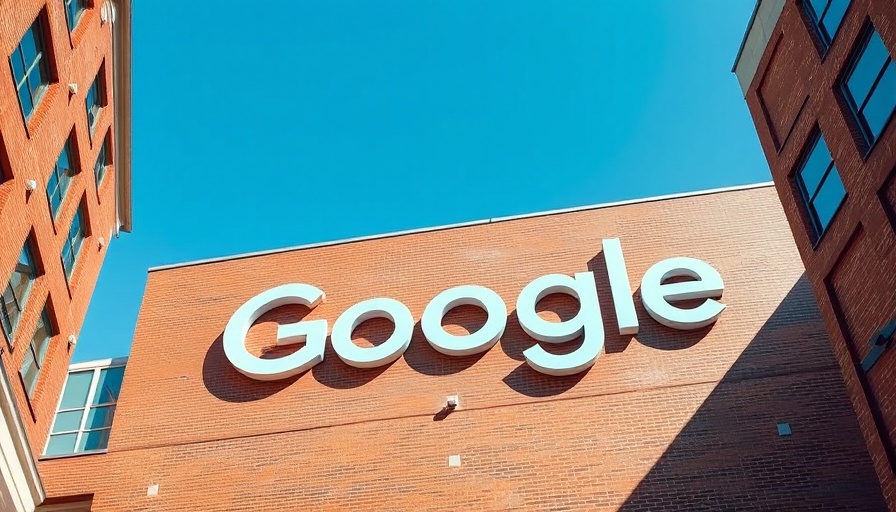
Google Faces Renewed Pressure: What the DOJ's Proposal Means
The Department of Justice (DOJ) remains steadfast in its demand for Google to divest its web browser Chrome, despite alterations to its earlier stance regarding the company's investments in artificial intelligence (AI). This updated approach is significant, given the shifting political landscape and the long-standing antitrust battle that has enveloped Google since 2020.
Background: A Landscape of Antitrust Challenges
The DOJ’s insistence on divesting Chrome is part of a broader effort to address what it views as Google’s monopolistic practices that have allegedly harmed competition in online search and advertising. Regulations proposed last November included selling Chrome, a move aimed at dismantling Google’s stronghold as the default search engine across various platforms. The DOJ criticized Google’s market actions, stating that they “have robbed consumers... of their right to choose among competing services.”
As reported, the DOJ initially sought to make Google sell its investments in AI, particularly in companies like Anthropic, a competing AI firm. However, this stipulation has now been relaxed, with the DOJ demanding only that Google notify them of future investments in the AI sector. This shift showcases the DOJ's recognition of the potential unintended consequences such divestitures could bring in the rapidly evolving AI space.
Understanding Google's Position
Google has consistently argued that its dominance stems from providing superior technology that users prefer. The company asserts it has nearly a 90% market share due to its competitive advantages, not illegal activities. Furthermore, Google maintains that the DOJ's recommendations could unnecessarily impede innovation and ultimately harm consumers by limiting choices.
A spokesperson for Google remarked that the DOJ’s proposals “go miles beyond the Court’s decision,” jeopardizing not just the company's future but also users' access to diverse technologies and services.
Implications of the DOJ Proposal
This DOJ proposal arrives at a sensitive time for both the tech giant and the US government, as the current administration, led by Trump, has promised to adopt tough stances against Big Tech. With Trump's previous administration already focusing on tech monopolies, it's evident that the battle lines are drawn once more. Paul Swanson, a litigation partner specializing in antitrust, explained that the DOJ is using these proposals as a negotiating tactic, asserting a challenging yet potentially flexible stance on tech regulation.
Future Predictions: What Lies Ahead
The forthcoming courtroom hearings in April are anticipated to be pivotal. Judge Amit P. Mehta's earlier ruling indicated that Google had engaged in illegal antics to preserve its monopoly, creating an urgent need to revisit its contracts and relationships with business partners. As this situation unfolds, it remains to be seen how these legal decisions will impact the AI landscape and competition in search.
The tech industry is watching closely as the outcome of this case could set benchmarks for future regulatory actions. For CEOs and professionals, understanding the implications of such regulatory changes is crucial for adapting strategies in the tech space.
Actionable Insights: Strategies for Navigating the Tech Market
For CEOs and business professionals, the ongoing antitrust case against Google illuminates critical strategies to remain competitive amid regulation. Companies should focus on fostering innovation while ensuring transparency in their practices to avoid scrutiny.
Engaging in collaborative partnerships that promote fair competition can also shield businesses from potential antitrust fallout. Moreover, as regulations evolve, staying informed about changes in the regulatory environment will be essential for strategic decision-making in the tech sector.
The Bigger Picture: What This Means for Consumers
The implications of Google’s potential divestiture extend beyond corporate interests; they directly affect consumers. A more competitive environment among search engines could lead to better services and innovations, ultimately enhancing the user experience. By breaking up monopolistic structures, the market could democratize access to information and technology, aligning more closely with the values of freedom and competition that the American system espouses.
As the landscape evolves, we invite you to consider how these changes might affect your business and what proactive measures can be implemented to navigate this complex environment successfully.
 Add Row
Add Row  Add
Add 




 Add Row
Add Row  Add
Add 

Write A Comment